Note: The digital platform “Wer ist Walter?” was created as part of the international project “Wer is Walter? Resistance against Nazism in Europe”, which took place between August 2022 and July 2024. The information about the project you find here comes from the project website that existed during this period, and which was last updated in June 2024.
The expert team is constituted of historians and curators from Bosnia and Herzegovina, Croatia, France and Germany, 12 persons all together. The main task of the expert team is to support the project team, especially through discussions on the content of the project and contributions to the preparation and realization of the project activities and outputs.
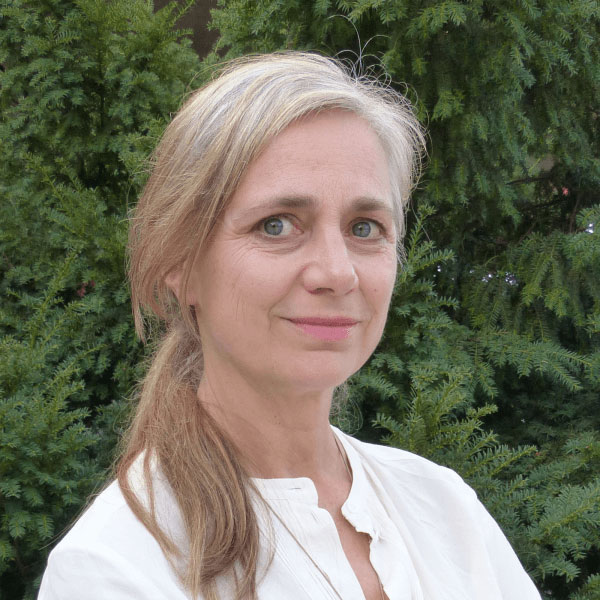
Marie-Édith Agostini has a Master of Arts from Rennes University. She received a theater design diploma from the London College of Fashion and an Art History diploma from the Sorbonne in Paris. Having worked as a costume designer in every area of the entertainment industry, she then decided to turn her hand to exhibition curating. For ten years, she managed the temporary exhibitions at the Shoah Memorial in Paris. With contemporary design, she enlightened the readability of the contents using new pathways in the exhibition space. She places transmission and inclusion at the center of her thinking, aiming to offer a personal approach to the visitors, whoever they may be. Therefore, each singular theme is approached with an original and transversal perception to give shape to the narratives, that allow a real contact with audiences. In 2020, she created her own company, agostini&simonneaux, and has continued to work with museum institutions as a freelancer. She is in the process of obtaining a diploma in art therapy.
Marie-Edith Agostini
READ MORE
Marie-Édith Agostini has a Master of Arts from Rennes University. She received a theater design diploma from the London College of Fashion and an Art History diploma from the Sorbonne in Paris. Having worked as a costume designer in every area of the entertainment industry, she then decided to turn her hand to exhibition curating. For ten years, she managed the temporary exhibitions at the Shoah Memorial in Paris. With contemporary design, she enlightened the readability of the contents using new pathways in the exhibition space. She places transmission and inclusion at the center of her thinking, aiming to offer a personal approach to the visitors, whoever they may be. Therefore, each singular theme is approached with an original and transversal perception to give shape to the narratives, that allow a real contact with audiences. In 2020, she created her own company, agostini&simonneaux, and has continued to work with museum institutions as a freelancer. She is in the process of obtaining a diploma in art therapy.
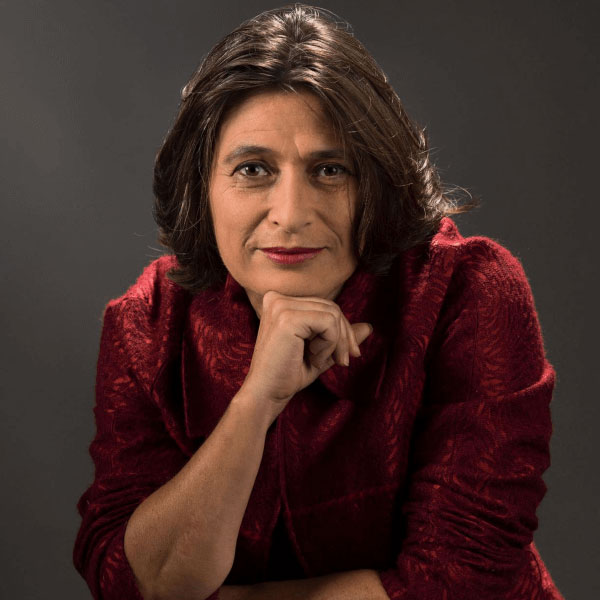
Corine Defrance is a historian and Research Directress at the French National Center for Scientific Research (CNRS). She is deputy directress of the Research Unit SIRICE in Paris and teaches at the University of Paris 1-Panthéon-Sorbonne. She works on the Europe of wars and traces of war: Franco-German relations in the 20th & 21st century; processes of European reconciliation in the 20th and 21st century, Allied Occupation of Germany and post-war German societies, Berlin during the Cold War…She is an Alumna of the Alexander-von-Humboldt-Foundation and was a visiting professor at the Freie Universität Berlin (2011/12) and Senior Fellow at the Leibniz-Institute for European History in Mainz (2020/21).
Corine Defrance
READ MORE
Corine Defrance is a historian and Research Directress at the French National Center for Scientific Research (CNRS). She is deputy directress of the Research Unit SIRICE in Paris and teaches at the University of Paris 1-Panthéon-Sorbonne. She works on the Europe of wars and traces of war: Franco-German relations in the 20th & 21st century; processes of European reconciliation in the 20th and 21st century, Allied Occupation of Germany and post-war German societies, Berlin during the Cold War…She is an Alumna of the Alexander-von-Humboldt-Foundation and was a visiting professor at the Freie Universität Berlin (2011/12) and Senior Fellow at the Leibniz-Institute for European History in Mainz (2020/21).

Dino Dupanović is a historian and museum worker. He was born in Bihać on May 29, 1990. He studied history at the Faculty of Philosophy in Sarajevo, where he obtained his masters degree. He is currently Ph.D. student. Since 2019, he has been working at the Museum of Una/Sana Canton in Bihać, as a curator and director of the Museum. He is the author of two permanent exhibitions and a large number of occasional museum exhibitions. He is author of several scientific articles and book reviews. He participated in several conferences etc.
Dino Dupanović
READ MORE
Dino Dupanović is a historian and museum worker. He was born in Bihać on May 29, 1990. He studied history at the Faculty of Philosophy in Sarajevo, where he obtained his masters degree. He is currently Ph.D. student. Since 2019, he has been working at the Museum of Una/Sana Canton in Bihać, as a curator and director of the Museum. He is the author of two permanent exhibitions and a large number of occasional museum exhibitions. He is author of several scientific articles and book reviews. He participated in several conferences etc.
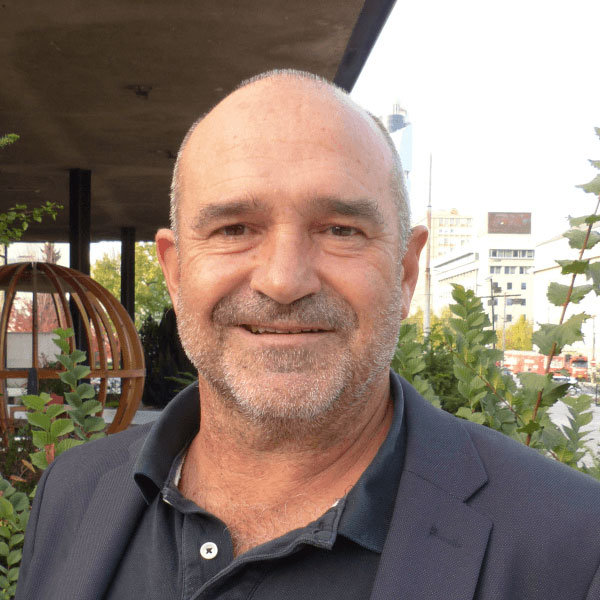
Yvan Gastaut is a historian and exhibition curator. Specialized in migratory issues, he works on questions of memory of traumatic events in 20th century Europe both in a research framework and through exhibitions. He also reflects on the question of civil disobedience and resistance.
Yvan Gastaut
READ MORE
Yvan Gastaut is a historian and exhibition curator. Specialized in migratory issues, he works on questions of memory of traumatic events in 20th century Europe both in a research framework and through exhibitions. He also reflects on the question of civil disobedience and resistance.

Sanja Horvatinčić is a Research Assistant at the Institute of Art History in Zagreb, Croatia. Her research focuses on the production of monuments, heritage and memory politics, and commemorative culture in socialist Yugoslavia. She took part in research and exhibition projects dealing with Yugoslav post-war modernism, Gender and Feminist art history of Easter Europe, Digital Art History, and theory of sculpture and heritage. She was a member of the curatorial advisory board for the exhibition „Toward a concrete utopia: Yugoslavian architecture 1948-1980“ (MoMA, 2018). Currently she is a member of the research project “Glob_EXCHANGE. Models and Practices of Global Cultural Exchange and Non-aligned Movement”. Since 208, she has been the coordinator of the international heritage project “Heritage from Below |Drežnica: Memories and Traces 1941-1945”.
Sanja Horvatinčić
READ MORE
Sanja Horvatinčić is a Research Assistant at the Institute of Art History in Zagreb, Croatia. Her research focuses on the production of monuments, heritage and memory politics, and commemorative culture in socialist Yugoslavia. She took part in research and exhibition projects dealing with Yugoslav post-war modernism, Gender and Feminist art history of Easter Europe, Digital Art History, and theory of sculpture and heritage. She was a member of the curatorial advisory board for the exhibition „Toward a concrete utopia: Yugoslavian architecture 1948-1980“ (MoMA, 2018). Currently she is a member of the research project “Glob_EXCHANGE. Models and Practices of Global Cultural Exchange and Non-aligned Movement”. Since 208, she has been the coordinator of the international heritage project “Heritage from Below |Drežnica: Memories and Traces 1941-1945”.

Hrvoje Klasić graduated from the Department of History, Faculty of Humanities, defended his master thesis entitled “Socio – Political changes in Sisak, 1970-1972″ and dissertation entitled “1968 in Yugoslavia. Socio – economic changes in international context” at the University of Zagreb. Since 2003 he has been employed as professor at the same Faculty and University. He holds number of the courses related to the world and national (Croatian) history of the 20th century. Hrvoje Klasić won the Annual Award of the Association of University Teachers and other Scholars in Zagreb in 2006, Annual Award of Sisak City in 2006 and Annual Award of Zagreb City in 2022. In 2017 The Serb National Council in Croatia gave him award for the improvement of Croatian-Serbian relations. In 2019 he won the Award for the promotion of peacebuilding, nonviolence and human rights. He is author of 5 books and author of two documentary series “Croatian Spring” and “Independent State of Croatia”. In 2022 he starts with a new documentary project about antifascist struggle in Yugoslavia during WW2.
Hrvoje Klasić
READ MORE
Hrvoje Klasić graduated from the Department of History, Faculty of Humanities, defended his master thesis entitled “Socio – Political changes in Sisak, 1970-1972″ and dissertation entitled “1968 in Yugoslavia. Socio – economic changes in international context” at the University of Zagreb. Since 2003 he has been employed as professor at the same Faculty and University. He holds number of the courses related to the world and national (Croatian) history of the 20th century. Hrvoje Klasić won the Annual Award of the Association of University Teachers and other Scholars in Zagreb in 2006, Annual Award of Sisak City in 2006 and Annual Award of Zagreb City in 2022. In 2017 The Serb National Council in Croatia gave him award for the improvement of Croatian-Serbian relations. In 2019 he won the Award for the promotion of peacebuilding, nonviolence and human rights. He is author of 5 books and author of two documentary series “Croatian Spring” and “Independent State of Croatia”. In 2022 he starts with a new documentary project about antifascist struggle in Yugoslavia during WW2.
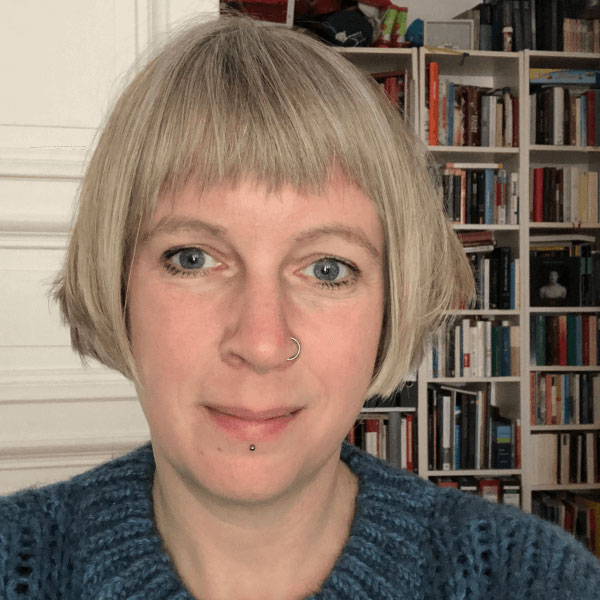
Dagmar Lieske, born in 1978 in Siegen, is living in Berlin since 2003 and works currently for the German Resistance Memorial Center in Berlin in a project about the resistance of women against the Third Reich. She wrote her Phd about the so called „Criminals“ in the concentration camp Sachsenhausen as ignored victims during the time of National Socialism. Her research interests include the history of National Socialism, history of sexuality and history of violence.
Dagmar Lieske
READ MORE
Dagmar Lieske, born in 1978 in Siegen, is living in Berlin since 2003 and works currently for the German Resistance Memorial Center in Berlin in a project about the resistance of women against the Third Reich. She wrote her Phd about the so called „Criminals“ in the concentration camp Sachsenhausen as ignored victims during the time of National Socialism. Her research interests include the history of National Socialism, history of sexuality and history of violence.

Nataša Mataušic was born in Belgrade in 1956. After graduating in history and archeology at the Faculty of Philosophy in Zagreb, she worked as a curator at the Museum of the Croatian People’s Revolution. She defended her PhD dissertation about “Diana Budisavljević and the civil action of rescuing children of victims of the Ustasha regime”. She is the author of more than 30 museum exhibitions, of which the exhibition “El shatt – a refugee from Croatia in the Sinai Desert, 1944-1946”, which won the award of the Croatian Museum Society as the best exhibition project for 2008. She has been the President of the Management Board of the Jasenovac Memorial Site and a member of the International Holocaust Remembrance Organization in the Working Group for Memorial Museums. She has been a member of the international expert group for the creation of a new joint exhibition of the former Yugoslav republics at the Auschwitz-Birkenau State Museum. She actively participated in about 20 scientific-professional conferences dealing with the themes of the Second World War, the culture of memory, museology and photography and film as sources for the study of history.
Nataša Mataušić
READ MORE
Nataša Mataušic was born in Belgrade in 1956. After graduating in history and archeology at the Faculty of Philosophy in Zagreb, she worked as a curator at the Museum of the Croatian People’s Revolution. She defended her PhD dissertation about “Diana Budisavljević and the civil action of rescuing children of victims of the Ustasha regime”. She is the author of more than 30 museum exhibitions, of which the exhibition “El shatt – a refugee from Croatia in the Sinai Desert, 1944-1946”, which won the award of the Croatian Museum Society as the best exhibition project for 2008. She has been the President of the Management Board of the Jasenovac Memorial Site and a member of the International Holocaust Remembrance Organization in the Working Group for Memorial Museums. She has been a member of the international expert group for the creation of a new joint exhibition of the former Yugoslav republics at the Auschwitz-Birkenau State Museum. She actively participated in about 20 scientific-professional conferences dealing with the themes of the Second World War, the culture of memory, museology and photography and film as sources for the study of history.
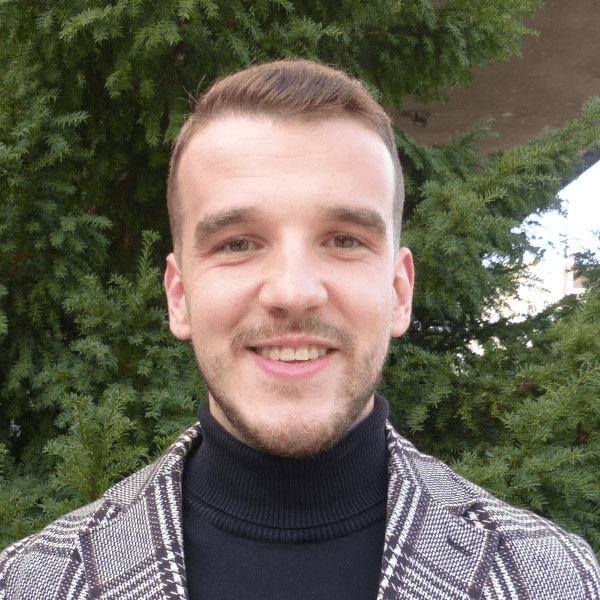
Nedim Pustahija is a historian from Bosnia and Herzegovina, currently holding a Master’s degree in History. His focus is on modern history with topics that combine global context with the Balkans. He participated in international projects like “Talking borders” organized by Association of Boerderline studies, as well in regional projects dealing with The Second World War and Yugoslav wars in the 90’s.
Nedim Pustahija
READ MORE
Nedim Pustahija is a historian from Bosnia and Herzegovina, currently holding a Master’s degree in History. His focus is on modern history with topics that combine global context with the Balkans. He participated in international projects like “Talking borders” organized by Association of Boerderline studies, as well in regional projects dealing with The Second World War and Yugoslav wars in the 90’s.
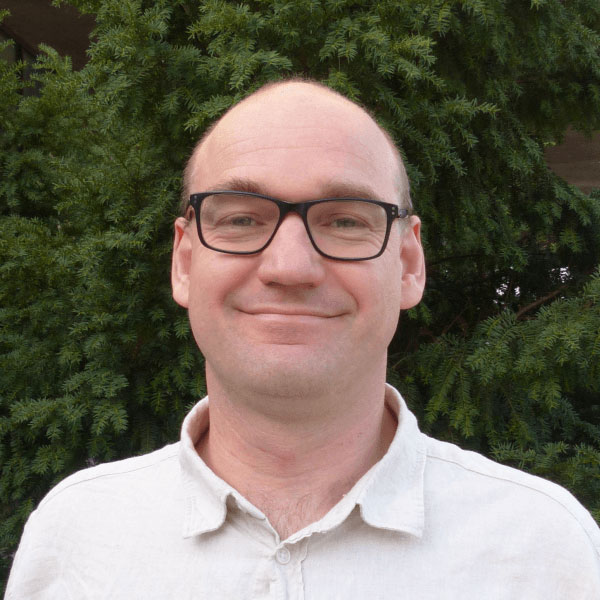
Robert Parzer is a historian. His work focusses on Nazi-Euthanasia crimes and the Holocaust. He has worked with many memorial sites, for example the Sachsenhausen Memorial and the Memorial for the murdered Jews of Europe in Berlin. He is currently a staff member of the Buchenwald Memorial, responsible for a digitization project.
Robert Parzer
READ MORE
Robert Parzer is a historian. His work focusses on Nazi-Euthanasia crimes and the Holocaust. He has worked with many memorial sites, for example the Sachsenhausen Memorial and the Memorial for the murdered Jews of Europe in Berlin. He is currently a staff member of the Buchenwald Memorial, responsible for a digitization project.

Vladan Vukliš, born 1984 in Banja Luka, Bosnia and Herzegovina, is a historian and senior archivist. He completed both undergraduate and graduate studies at the University of Banja Luka, Faculty of Philosophy, Department of History, with primary focus on 20th century contemporary history. In 2022 he defended his doctoral dissertation “Yugoslavs, the Spanish Civil War and the War Émigrés”, which is expected to be published as a book in the near future. Vukliš is employed by the Archives of the Republic of Srpska since 2013, where he is currently in the position of assistant director. He published extensively in the fields of history and information studies, and his research interests are focused on the workers’ and the communist movement, antifascism, Second World War and history of Yugoslavia.
Vladan Vukliš
READ MORE
Vladan Vukliš, born 1984 in Banja Luka, Bosnia and Herzegovina, is a historian and senior archivist. He completed both undergraduate and graduate studies at the University of Banja Luka, Faculty of Philosophy, Department of History, with primary focus on 20th century contemporary history. In 2022 he defended his doctoral dissertation “Yugoslavs, the Spanish Civil War and the War Émigrés”, which is expected to be published as a book in the near future. Vukliš is employed by the Archives of the Republic of Srpska since 2013, where he is currently in the position of assistant director. He published extensively in the fields of history and information studies, and his research interests are focused on the workers’ and the communist movement, antifascism, Second World War and history of Yugoslavia.
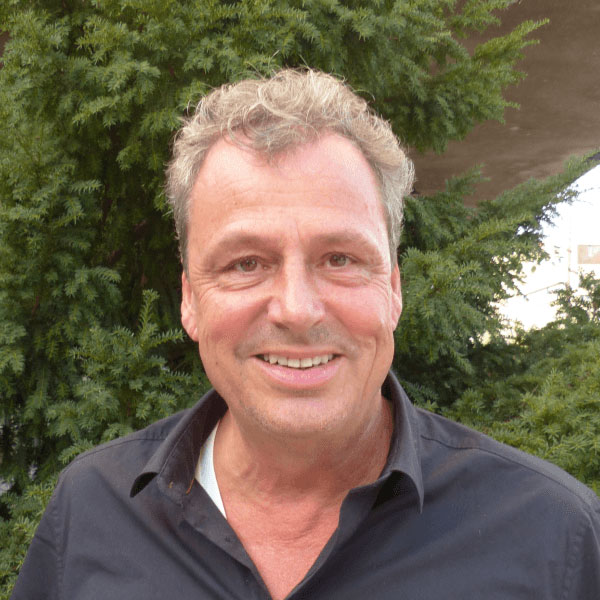
Matthias Waechter was born in Bonn in 1965. After his studies of History and Philosophy at the Universities of Bonn, Freiburg, Paris, and Rochester, he took his PhD at the University of Freiburg and joined the faculty of the history department. He was a Research Fellow at the German Historical Institute Paris in 1997/98 and a Fulbright Fellow at New York University in 1999. In 2000, he joined CIFE, first as a DAAD Visiting Professor and since 2005 as its Director. He specializes in U.S. history, contemporary France, Franco-German relations and European integration. In his research, he focuses on problems of collective identity, historical consciousness, political myths and transnational intellectuals. His book “Der Mythos des Gaullismus. Heldenkult, Geschichtspolitik und Ideologie” (2006) was awarded with the Franco-German Parliamentary Prize and the Daimler Chrysler Services Prize.
Matthias Waechter
READ MORE
Matthias Waechter was born in Bonn in 1965. After his studies of History and Philosophy at the Universities of Bonn, Freiburg, Paris, and Rochester, he took his PhD at the University of Freiburg and joined the faculty of the history department. He was a Research Fellow at the German Historical Institute Paris in 1997/98 and a Fulbright Fellow at New York University in 1999. In 2000, he joined CIFE, first as a DAAD Visiting Professor and since 2005 as its Director. He specializes in U.S. history, contemporary France, Franco-German relations and European integration. In his research, he focuses on problems of collective identity, historical consciousness, political myths and transnational intellectuals. His book “Der Mythos des Gaullismus. Heldenkult, Geschichtspolitik und Ideologie” (2006) was awarded with the Franco-German Parliamentary Prize and the Daimler Chrysler Services Prize.

